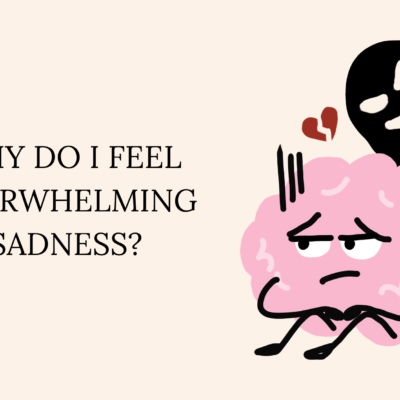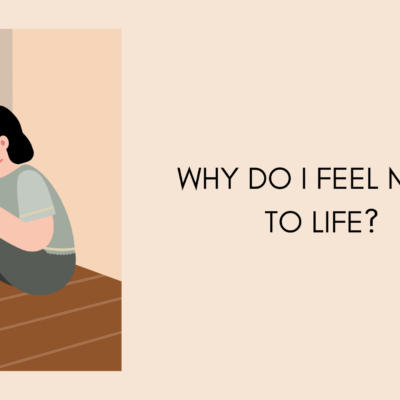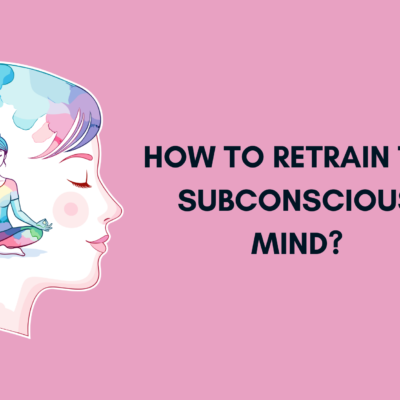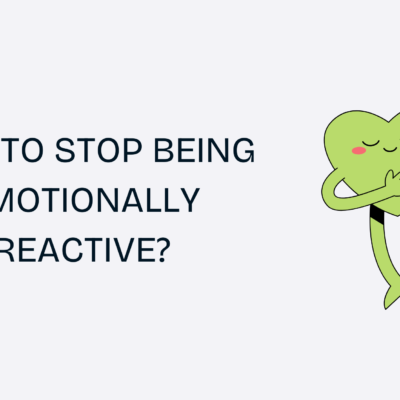How to Stop Being Negative all the Time: Negativity is like a slow poison. It creeps into our thoughts, affects our relationships, diminishes our confidence, and slowly chips away at our mental and physical well-being. We all have moments of doubt or fear, but when negativity becomes a constant presence in our lives, it’s time to pause and reassess. You might find yourself always expecting the worst, overthinking situations, or focusing more on what’s going wrong than what’s going right. The good news? You can train your mind to think differently.
This article will guide you through practical steps to stop being negative all the time, understand the root cause of your negativity, and replace it with a healthier, more balanced mindset.
Also Read:
1. Recognize the Pattern of Negativity
The first and most important step is awareness. You cannot change what you don’t acknowledge.
- Do you often assume the worst will happen?
- Do you constantly complain or focus on what’s missing in your life?
- Do you compare yourself with others and feel inferior?
- Do you replay past mistakes or fear future failures?
Write down your recurring negative thoughts in a journal. This helps you identify patterns and triggers. For example, maybe you’re more negative after scrolling through social media or talking to a certain person. Awareness gives you the power to interrupt the cycle.
2. Understand the Root Cause
Negativity usually has a root cause. It could stem from childhood conditioning, past trauma, low self-esteem, or even a biological factor like hormonal imbalance or chronic stress.
Ask yourself:
- When did this negativity start?
- Was there an incident or period in life that made me start thinking this way?
- Am I protecting myself from disappointment by expecting the worst?
Sometimes negativity becomes a shield—a way to avoid getting hurt. But instead of protecting us, it limits us.
3. Challenge Negative Thoughts
Don’t accept every thought as true just because it popped into your head. Negative thinking is often distorted thinking.
Some common types of cognitive distortions:
- Catastrophizing: “If I fail this test, my life is over.”
- Black-and-white thinking: “If I’m not perfect, I’m a failure.”
- Mind-reading: “They didn’t text back, they must hate me.”
Whenever you catch a negative thought, challenge it:
- “Is this 100% true?”
- “What evidence do I have?”
- “How would I view this if I were feeling more confident?”
Over time, this rewires your brain to seek logic instead of panic.
4. Limit Your Exposure to Negativity
What you consume affects your mindset. This includes:
- People: Do you hang out with chronic complainers or people who gossip?
- Social media: Are you constantly comparing your life with others?
- News: Are you absorbing fear-driven headlines every morning?
You don’t need to cut everything out, but set boundaries. Follow uplifting pages. Watch content that makes you feel inspired. Surround yourself with people who talk about ideas and possibilities, not just problems.
5. Practice Gratitude Every Day
Gratitude is one of the most powerful tools against negativity. It shifts your focus from what’s lacking to what’s already good.
Try this:
- Every morning, write down 3 things you are grateful for.
- Be specific. Instead of “I’m grateful for my family,” write “I’m grateful for my sister’s phone call last night.”
- Reflect on small moments of joy: good food, a smile from a stranger, a sunny day.
Over time, this practice trains your brain to look for the positive, even in tough situations.
6. Take Care of Your Body
Negativity often feels heavier when your body is tired, depleted, or stressed.
- Exercise: Physical activity boosts endorphins (feel-good hormones). Even a 20-minute walk can change your mood.
- Sleep: Lack of sleep affects emotional regulation and makes it harder to think rationally.
- Nutrition: A poor diet (too much sugar, caffeine, processed food) can lead to mood swings and fatigue.
- Hydration: Dehydration affects focus and mood—drink plenty of water.
A healthy body supports a healthy mind.
7. Replace Complaints with Solutions
If you’re always talking about what’s wrong, try this instead:
- Acknowledge the issue: “Yes, this situation is frustrating.”
- Shift focus: “What can I do about it?”
- Action-based mindset: “What small step can I take today?”
Even if you can’t fix everything, the act of trying shifts your energy from helplessness to empowerment.
8. Surround Yourself with Positivity
Your environment shapes your mental state.
- Read books that uplift and educate.
- Watch motivational videos or listen to podcasts by people who overcame negativity.
- Spend time with people who encourage you, challenge you, and genuinely care.
Energy is contagious. Make sure you’re catching the right one.
9. Be Kind to Yourself
Sometimes, the person you’re most negative toward is yourself. Harsh self-talk can become a habit:
- “I always mess things up.”
- “I’m not good enough.”
- “I’ll never succeed.”
Start treating yourself like you would a close friend:
- Replace “I’m such an idiot” with “I made a mistake, and that’s okay.”
- Replace “I’ll never change” with “I’m learning and improving every day.”
Kindness doesn’t mean ignoring your flaws. It means acknowledging them without destroying your spirit.
10. Practice Mindfulness and Meditation
Negativity often comes from the past (regret) or future (worry). Mindfulness pulls you into the present.
- Take 5-10 minutes daily to sit in silence and focus on your breath.
- Observe your thoughts without judgment. Don’t try to push them away—just let them pass like clouds in the sky.
- This builds a mental “pause button,” giving you space before reacting emotionally.
Meditation also reduces anxiety, improves focus, and enhances emotional regulation.
11. Celebrate Small Wins
Negativity often overlooks progress. You might be doing better than you think.
- Did you wake up earlier today? A win.
- Did you stop yourself from snapping in anger? A win.
- Did you choose a healthy snack over junk food? Another win.
Track these small wins. They build confidence and motivate you to keep going.
12. Seek Help if Needed
If negativity is deeply rooted and affecting your daily life, consider talking to a therapist or counselor. Professional help can:
- Uncover deep-rooted beliefs
- Provide coping strategies
- Offer a safe space to express emotions
There is no shame in seeking help. It’s a step toward strength, not weakness.
Final Thoughts
Becoming less negative doesn’t mean ignoring reality or pretending everything is perfect. It means choosing hope over despair, solutions over complaints, and self-compassion over self-criticism.
Negativity may have become a habit—but habits can change. Step by step, with awareness, effort, and kindness toward yourself, you can break free from the cycle and build a mindset that supports peace, growth, and genuine happiness.






